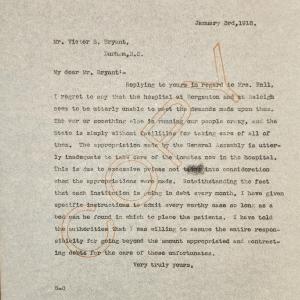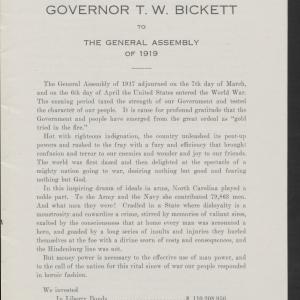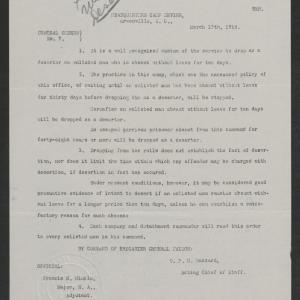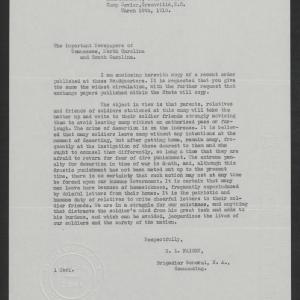- Transcription
November 2nd, 1918.
My dear Mr. Taft:-
I thank you for your very kind and courteous letter of the 30th of October in reply to my telegram of recent date.
I confess that the letter comes to me as a distinct surprise for prior to its reception I would have gone upon the witness stand and testified that the greatest enemy of the League to Enforce peace is Mr. Roosevelt, based upon his editorial of October 16th of this year in the Kansas City Star, and I would have further testified on oath that the greatest friend of the League to Enforce Peace is Mr. Wilson, based upon his New York speech of September 27th. In the recent discussion of the Fourteen Articles I have not seen any intimation that Mr. Wilson intended to recede from the position that he took in his New York speech, in which he said he proposed to form a league of nations as part and parcel of the treaty of peace. To my mind this is the vital question, for unless the league of nations is made a part of the treaty then, in my opinion, it will be relegated for the next ten years to academic discussions on Chatauqua platforms and in high school debating societies.
Of course I can understand how differences may exist as to just how far we should go, but if we want to get anywhere it seems to me that the thing to do is to line up behind the President. The processes of disarmament will necessarily be slow, but that is the ultimate end sought. As I understand it, the purposes of our League is to put war out of business, and you cannot do that with nations armed to their teeth. The one reason for the existing war is the fact that Germany was armed. If she had not been armed she would not have dreamed of fighting. You cannot train a nation of men to fight without their fighting, and it is my opinion that we ought to go just as far towards disarmament as practical considerations will admit. Of course it cannot be done in a day nor in a generation, but we can set that up as the ultimate goal. In my opinion the one great work before this century is to make the public conscience as sensitive as that of the individual, and to compel nations to observe in their dealings with each other the principles of the Ten Commandments and the Sermon on the Mount. I may do him an injustice, but, judging from his public utterances, Mr. Roosevelt is today closer kin to the Kaiser than any other living man.
You will pardon me for adding that, with the profoundest respect for your opinion, I find myself in utter disagreement with Mr. Roosevelt, and I think his attack upon Mr. Wilson is born of the same jealous selfishness as his attack upon you when you were nominated for President the second time in Chicago.
With much respect, I beg to remain,
Sincerely yours,
[unsigned]
Hon. Wm. H. Taft,
Washington, D.C.
Date:
Sender:
Recipient:
Related People:
Repository:
Collection:
Places:
»» »» New York
»» »» Washington, D.C.






